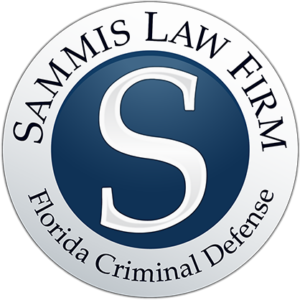Crimes Against Property
According to the 2016-17 Statistical Reference Guide for Circuit Criminal, criminal against property made up 51.1% of the circuit criminal filings by category. This means that property crimes outnumber all other types of criminal filings in Florida including serious and less serious crimes against person and drug offenses.
The statistical reference guide also shows that in the Sixth Judicial Circuit for Pasco County, FL, 3,201 cases were filed that were classified as crimes against property in fiscal year 2016-17.
The most common property crimes in Pasco County, FL, include burglary, theft, forgery, fraud, and worthless checks.
Attorneys for Property Crimes in Pasco County, FL
If you were arrested for a property crime in Pasco County, FL, then contact an experienced criminal defense attorney at Sammis Law Firm. Our main office is in downtown Tampa in Hillsborough County. We have a second office in New Port Richey, directly across from the courthouse at the West Pasco Judicial Center.
Contact us for a free consultation to discuss the charges pending against you, the typical penalties imposed for that offense, and the best ways to fight the case.
Call (813) 250-0500.
Property Theft Crimes in Florida
Section 812.014, F.S., defines and categorizes thefts into misdemeanor or felony criminal violations. Whether a theft is a misdemeanor or a felony generally depends upon several factors including:
- the value of the property taken by the defendant;
- the defendant’s history of theft convictions; or
- the type of property taken.
A person commits theft if he or she knowingly obtains or uses, or endeavors to obtain or use, the property of another with intent to, either temporarily or permanently:
- Deprive the other person of a right to the property or a benefit from the property; or
- Appropriate the property to his or her own use or to the use of any person not entitled to the use of the property.
The penalties for the offense depend on the way the theft crime is charged including:
- Second-degree petit theft is a second-degree misdemeanor if the theft of property is valued at less than $100; or
- First-degree petit theft is a first-degree misdemeanor if the theft of property is valued at $100 or more but less than $300.
Second-degree petit theft incurs greater penalties if there is a prior theft conviction:
- a first-degree misdemeanor if there is one prior conviction; and
- a third-degree felony if there are two or more prior convictions.
Third grand theft, a third degree felony, is theft of:
- Property valued at $300 or more, but less than $20,000.
- Specified property including:
- A will, codicil, or testamentary instrument;
- A firearm;
- A motor vehicle;
- Any commercially farmed animal, bee colony, aquaculture species or citrus fruit of over 2,000 pieces;
- Any fire extinguisher;
- Any stop sign;
- Anhydrous ammonia;
- Any amount of citrus fruit consisting of 2,000 or more individual pieces of fruit; o Property taken from a designated, posted construction site; and
- Any amount of a controlled substance as defined in s. 893.02, F.S.
- Property from a dwelling or its unenclosed curtilage if the property is valued at $100 or more, but less than $300.15
Second-degree grand theft is a second-degree felony if the theft involves:
- Property valued at $20,000 or more, but less than $100,000;
- Cargo valued at less than $50,000 in specified circumstances; or
- Emergency medical equipment or law enforcement equipment valued at $300 or more in specified circumstances.
First-degree grand theft is a first-degree felony if the theft involves:
- Property valued at $100,000 or more;
- A semitrailer deployed by a law enforcement officer; or
- Cargo valued at $50,000 or more in specified circumstances.
First-degree grand theft also includes any grand theft in which, in the course of committing the offense, a motor vehicle is used as specified or the offender causes damage to the real or personal property of another in excess of $1,000.
Retail Theft in Florida
Section 812.015(1)(d), F.S., defines retail theft as:
- The taking possession of or carrying away of merchandise, property, money, or negotiable documents;
- Altering or removing a label, universal product code, or price tag;
- Transferring merchandise from one container to another; or
- Removing a shopping cart, with intent to deprive the merchant of the possession, use, benefit, or full retail value.
Theft defined as retail theft is punishable under s. 812.014, F.S., and like any other type of theft, must meet the elements of the applicable theft offense under that statute.
Section 812.015, F.S., also provides that retail theft is a third degree felony if the theft involves property valued at $300 or more and the person commits the theft in a specified manner (e.g., commits theft from more than one location within a 48-hour period, in which case the amount of each individual theft is aggregated to determine the value of the property stolen).
Retail theft is a second-degree felony if the person has previously been convicted of third-degree felony retail theft or individually, or in concert with one or more other persons, coordinates the activities of one or more persons in committing the offense of retail theft where the stolen property has a value in excess of $3,000.
The statute also requires a fine of not less than $50 and no more than $1,000 for a second or subsequent conviction for petit theft from a merchant, farmer, or transit agency and provides that it is a third degree felony to possess, or use or attempt to use, any antishoplifting or inventory control device countermeasure within any premises used for the retail purchase or sale of any merchandise.
This article was last updated on Friday, October 12, 2018.















